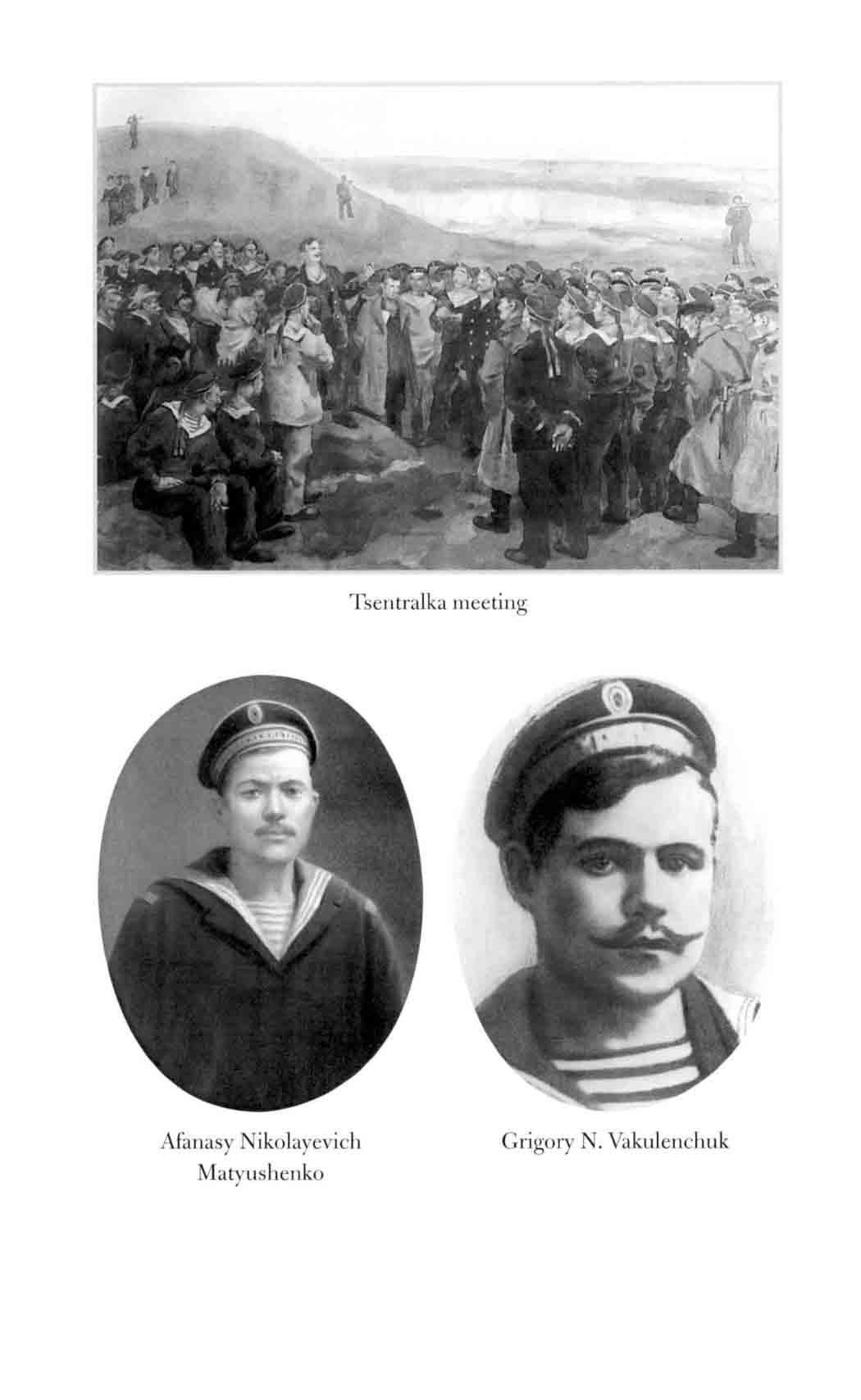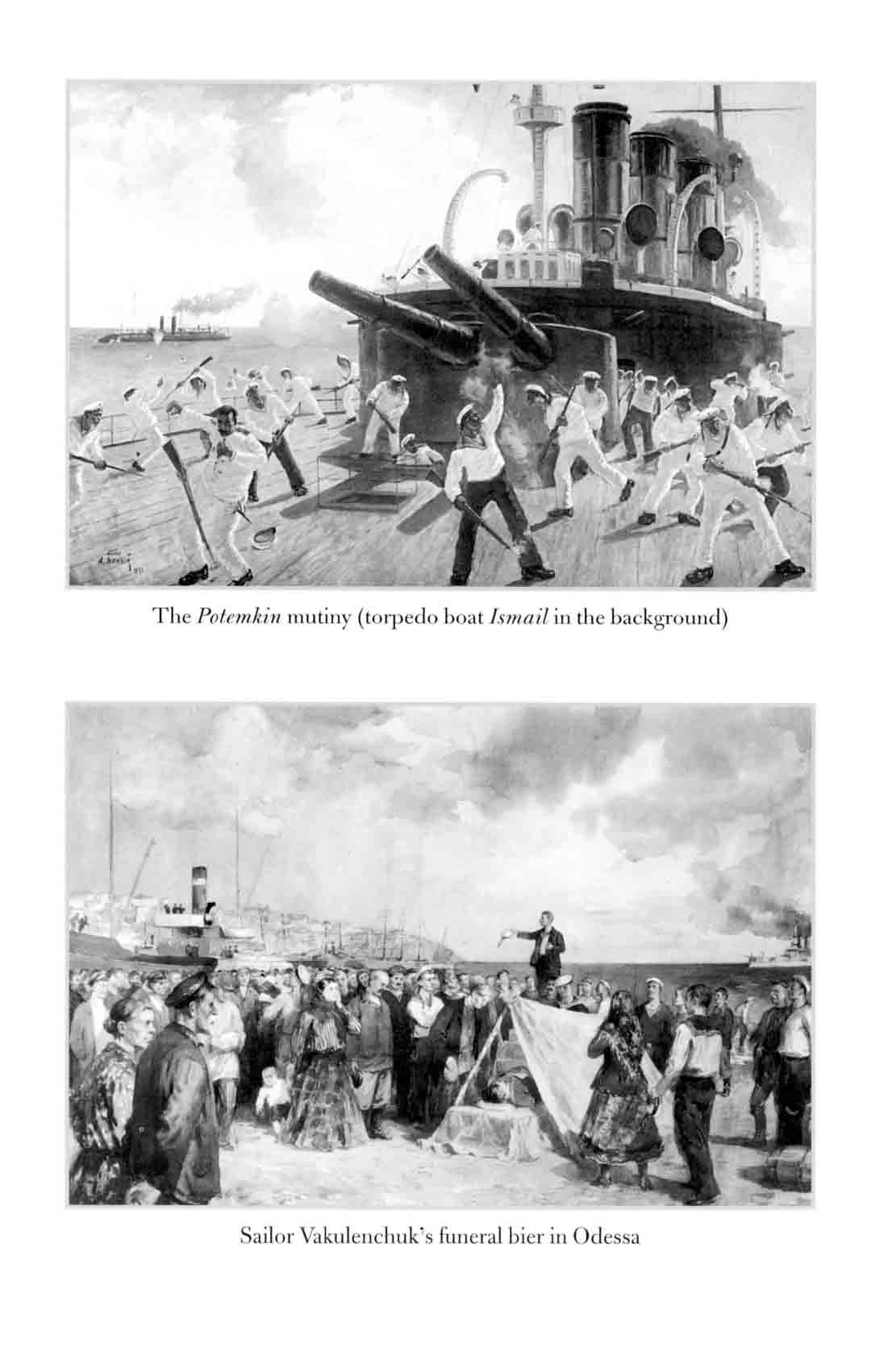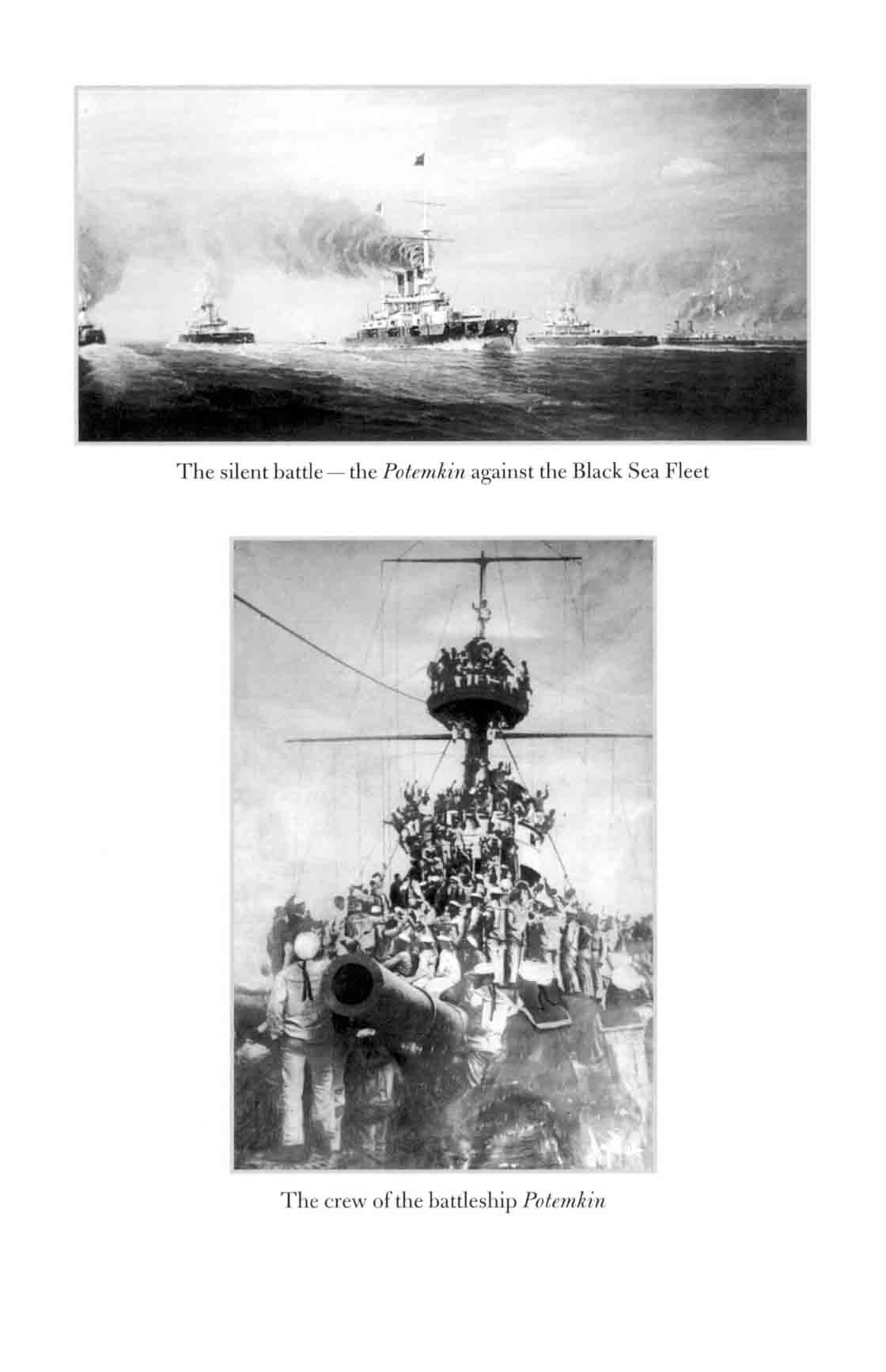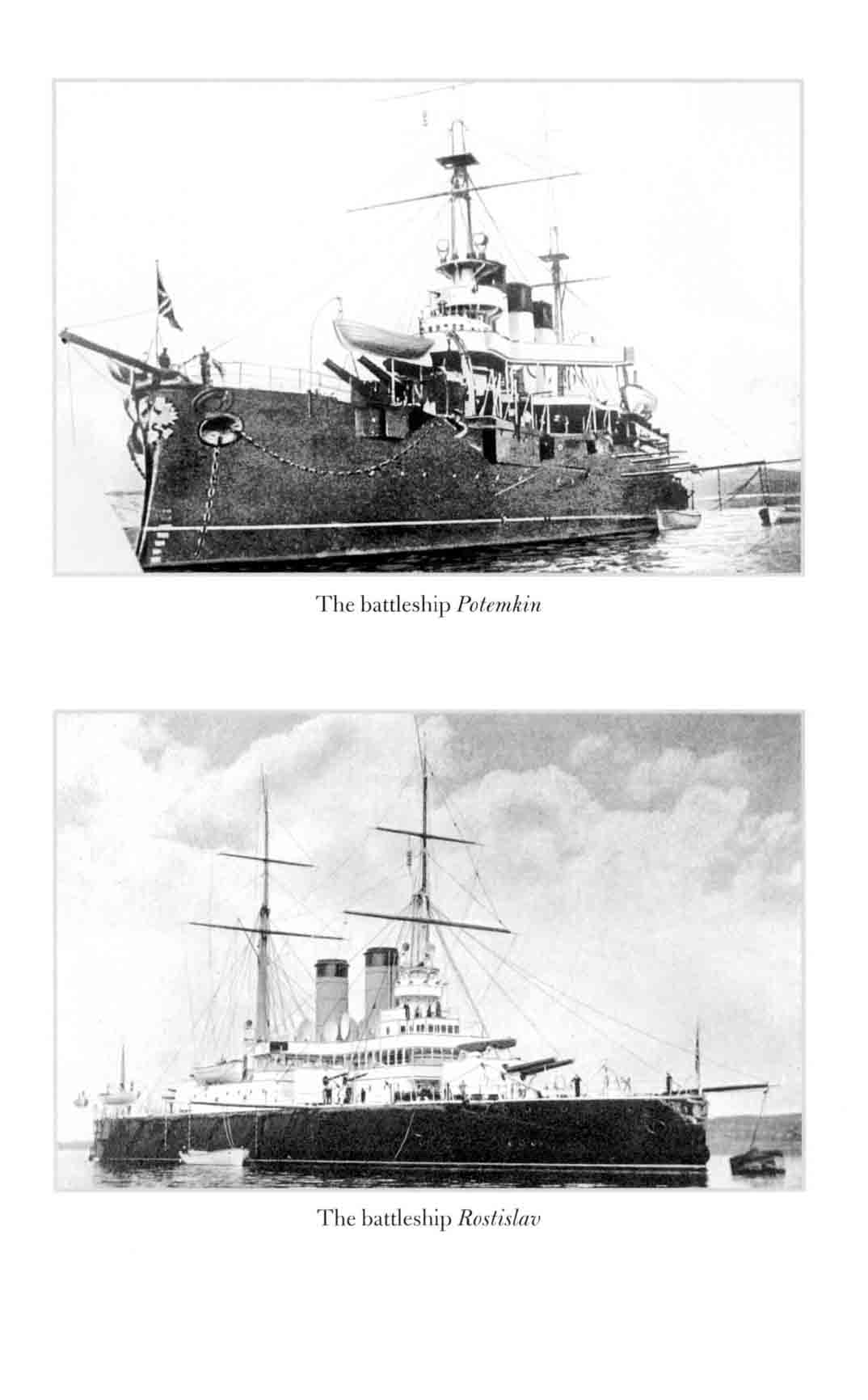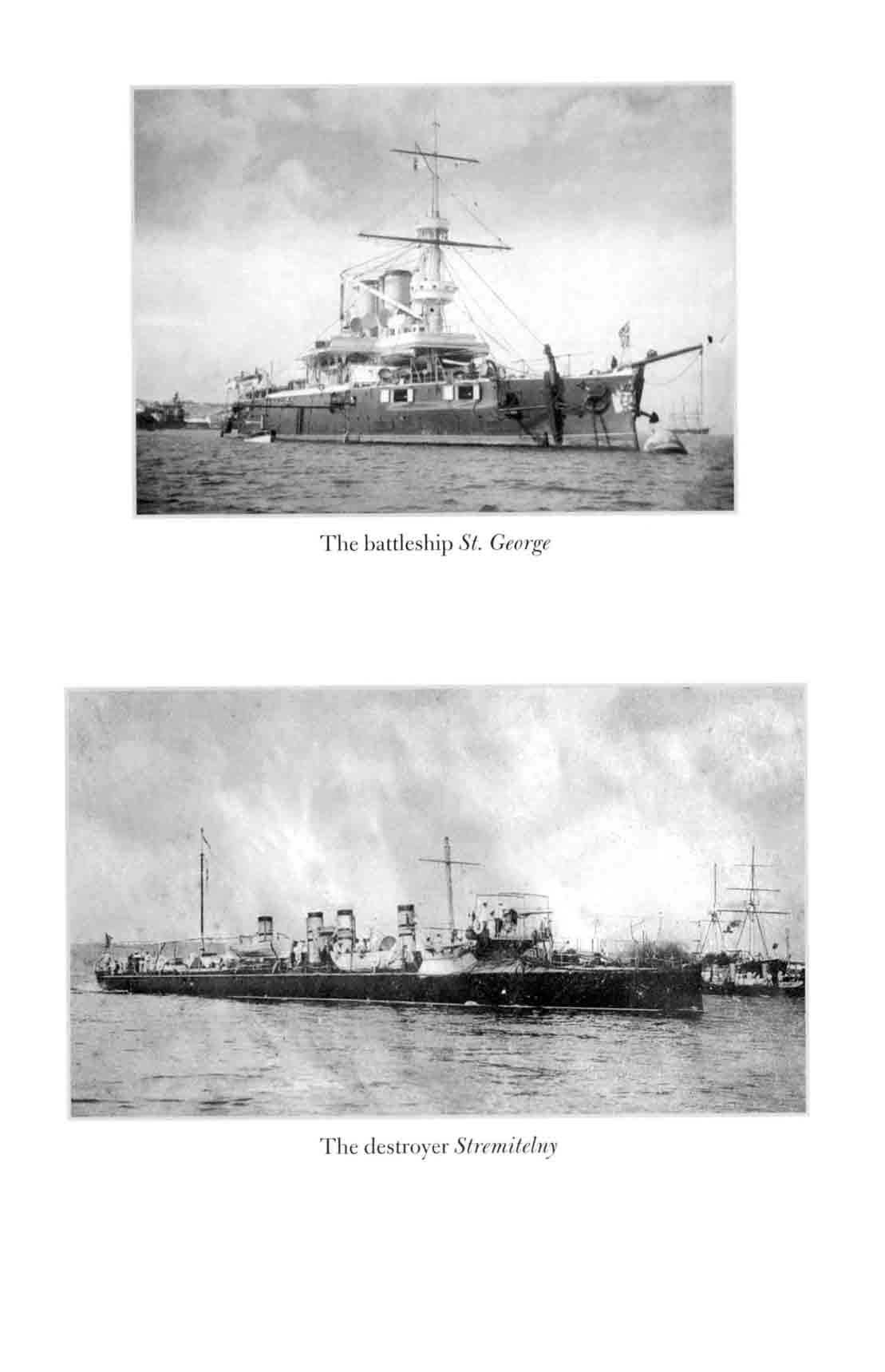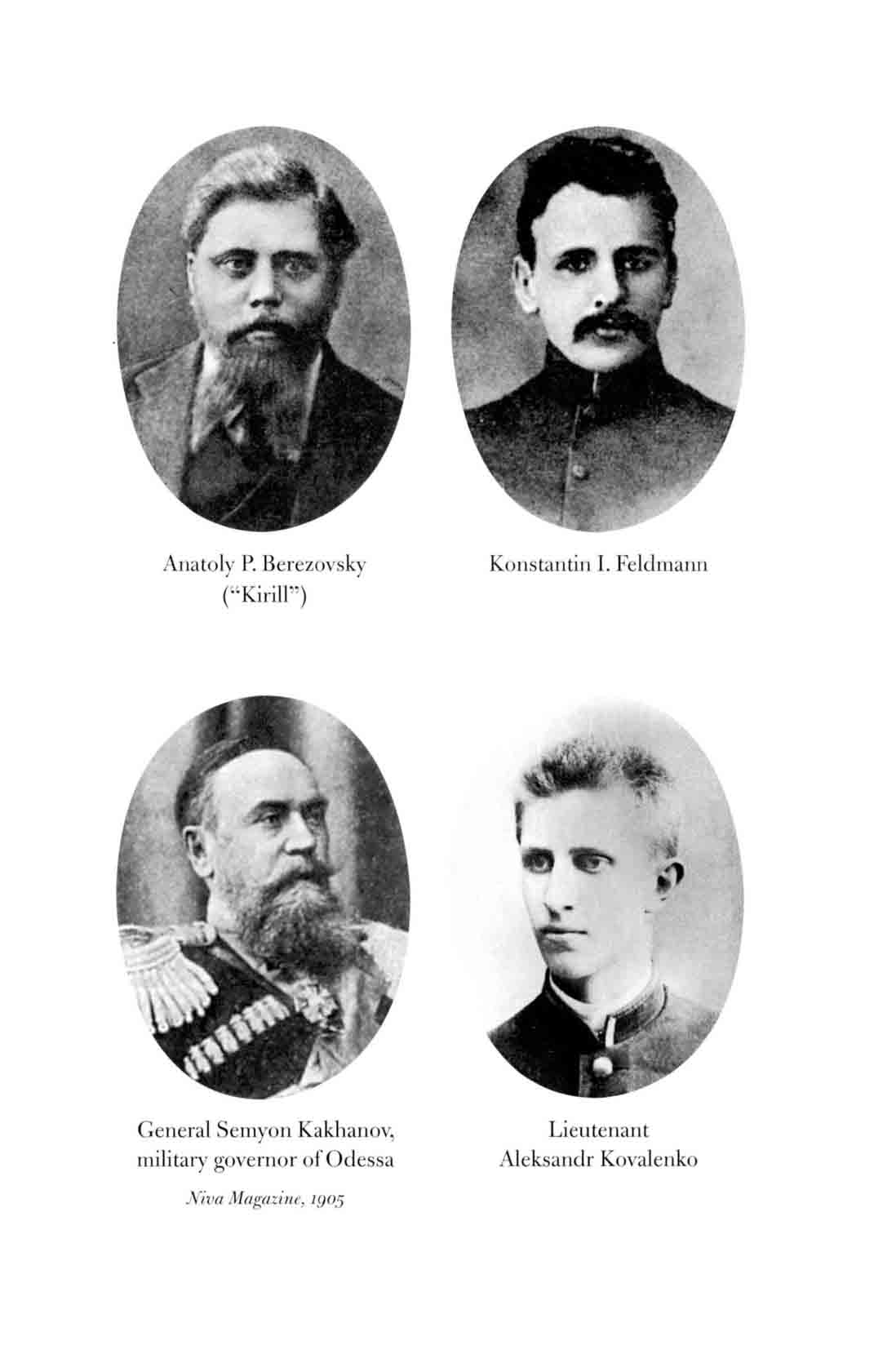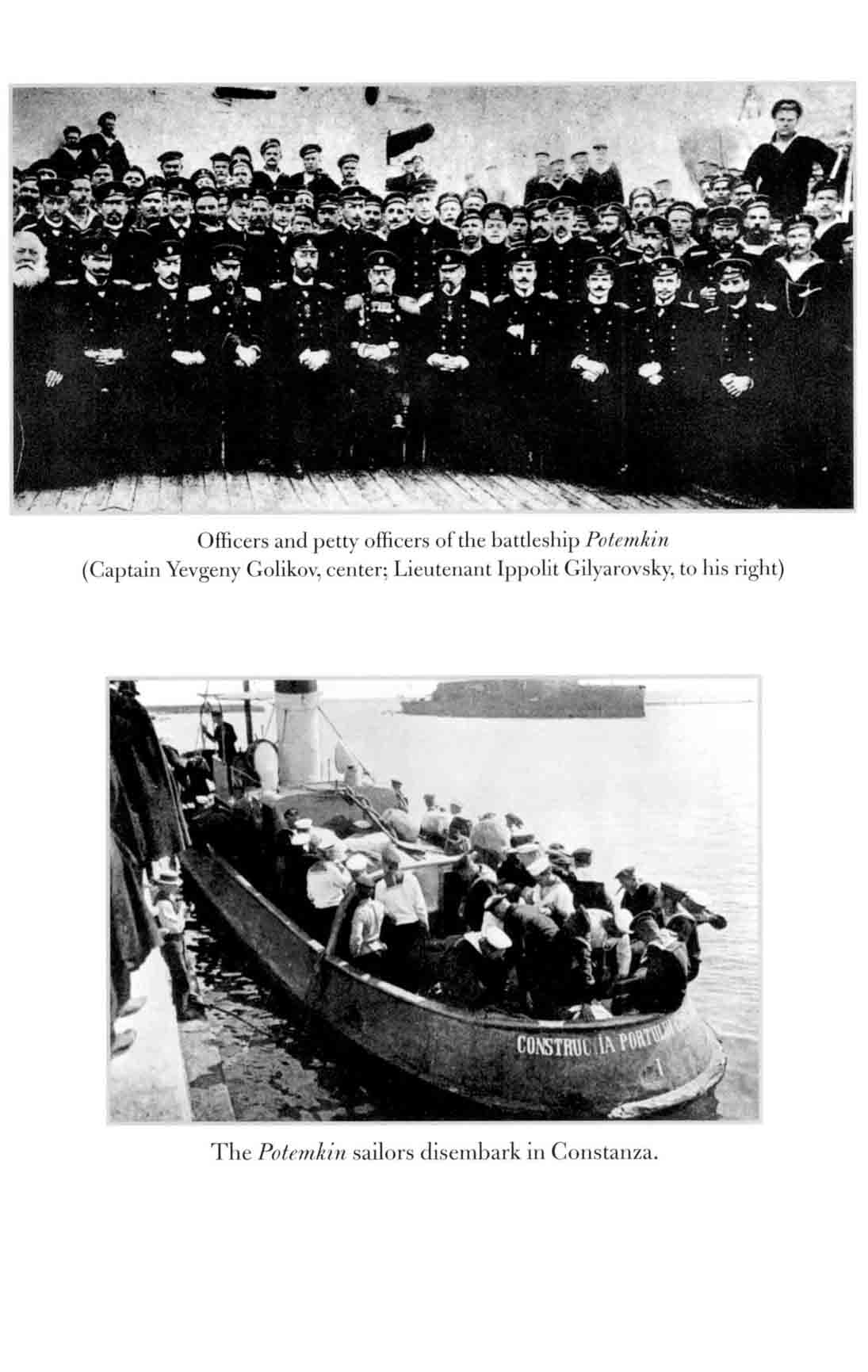Red Mutiny (28 page)
Authors: Neal Bascomb

As the dust cleared, people came out of their houses to inspect the damage. The roof of 71 Nezhinskaya Street was split in two, its timber supports frayed like rope. Nobody emerged from the house. A giant hole gaped in the wall of a nearby building. Telegraph wires had fallen, and the streets were strewn with rubble. Underneath a nearby acacia tree, a janitor discovered a fragment of the six-inch shell. In a daze, people surrounded it and pointed at the smoking fragment as if they didn't know from where it came.
Then came a second roar from the harbor and the shrill whine of another shell descending into the city. The street emptied.
"Overshot. Overshot!" announced several spotters on the
Potemkin
after the second shell disappeared over the rooftops.
Sailors pounded their fists against the bulkheads and swore at the gunners. They had meant to strike the military council, not rain terror on the city. If they opened up a broadside with all their guns, they would no doubt eventually find their mark, but many innocent civilians would die in the process.
"A white flag! They're waving the white flag!" Vedenmeyer cried out, shortly before the sailors could blame him for the inaccuracy of the six-inch battery.
The misfirings had undermined the crew's resolve to fire on the military council, and now the sighting of a white flag gave them reason to cease the barrage altogether, though Vedenmeyer was the only one who spotted the flag in the encroaching darkness.
Soon after, the sailor committee met and agreed on a new ultimatum to send to General Kakhanov, demanding that the police and troops withdraw from the city. While the crew unloaded the shells from the batteries, Matyushenko and Feldmann boarded a launch to deliver the ultimatum. In case they were arrested or attacked, Matyushenko brought two signal flares to alert the
Potemkin.
He stashed one under his shirt. He left the other on the boat for the sailors to use.
When the launch landed ashore, the port was as still and empty as a cemetery. On the way to the Richelieu Steps, the men passed several charred corpses that had yet to be carted away after the previous night's violence. The ominous silence was broken only once, by the hooves of a pair of galloping horses hauling an ambulance carriage. At the top of the steps stood General Karangozov, a dwarf of a man, towered over by the host of officers at his side. He asked why they had come.
"We've fired two shells today as a demonstration that we may take decisive action at any moment," Feldmann said. "But we don't desire unnecessary bloodshed. We invite the commander of the troops to come out to us on the ship or to send some fully authorized person to hear our demands."
"And if we don't accede to this request?" Karangozov asked crisply.
"Then we consider ourselves free to take action," Matyushenko said, deadpan.
"Very well. I'll report your request to General Kakhanov."
"If we don't return to the ship by ten o'clock," Feldmann warned, "they'll open fire from all the guns."
While the sailors waited at the top of the Richelieu Steps, Karangozov departed to military headquarters. He found Kakhanov in a foul temper. The city's elite were fleeing Odessa, taking freight trains where necessary, and all the factories remained shut down. Civilian officials had wired the minister of the interior, begging for help and insisting that the military had "no means to appease the population." Kakhanov had still not received an update from the squadron, and even though his troops had finally set up artillery positions on the hillsides, they would be useless if the
Potemkin
maneuvered out of range. No, he told Karangozov, he refused to meet with these mutinous sailors who had dared fire on the cityâand, what was worse, without any accuracy. They were mad, Kakhanov finished, if they believed he would discuss terms.
Fifteen minutes later, Karangozov returned to the sailors. He relayed this response to Matyushenko in a contemptuous tone: "The commander in chief doesn't desire to enter into any negotiations with mutineers. If you want to fire more shells at the houses of peaceful citizens, then God and the tsar will be your judges. I can only suggest you give yourselves up and ask for forgiveness. Now you can go."
Matyushenko was stunned by the response: would Kakhanov truly rather let them destroy the city than accept their demands? If he would not listen to reason, then the sailors had no other choice. The delegation returned to the
Potemkin.
One committee member hissed, "We'll show him whether we are mutineers. If he won't talk to us, then let him answer to our twelve-inch guns." Another sailor voiced what others were hoping: "
If only
the squadron would come, Kakhanov wouldn't talk to us like that."
They resolved that if the squadron failed to show up the next day, they would launch another assault on Odessa, concentrating their guns on the main boulevards and city parks where the soldiers were stationed. This time they would sustain their bombardment until Kakhanov surrendered. When two representatives from the city's united revolutionary commission pulled their boat alongside the
Potemkin
later that night, the sailors told them of their plan and asked that they be ready to join this battle against the government.
The sailors settled in for another night. Those on watch panned the harbor's waters with projector lights, fearful that the Black Sea Fleet command might launch a torpedo attack on them in the dark.
They were blind to the fact that an attack had already been perpetratedâfrom on board the
Potemkin
itself. The signalman Vedenmeyer, a trusted committee member, had double-crossed them.
Even before the battleship left Sevastopol, Vedenmeyer had been one of Golikov's informants. He reported on the
Potemkin's
revolutionary activities and was paid generously for his efforts. In the hours immediately after the mutiny, he had secured the fleet's secret codebooks from the captain's stateroom to prevent the sailors from using them.
Although Vedenmeyer blamed the overshots of the six-inch guns on their lack of a scaled and detailed map of Odessa, he had purposely given the battery crew the wrong range. And the "white flag" that he had seen was actually soldiers in the port signaling by semaphore: "Keep up the bombardment. In the morning, we will join you." His sabotage that evening would later earn him the tsar's thanks. He was the first of two traitors to act decisively against the
Potemkin.
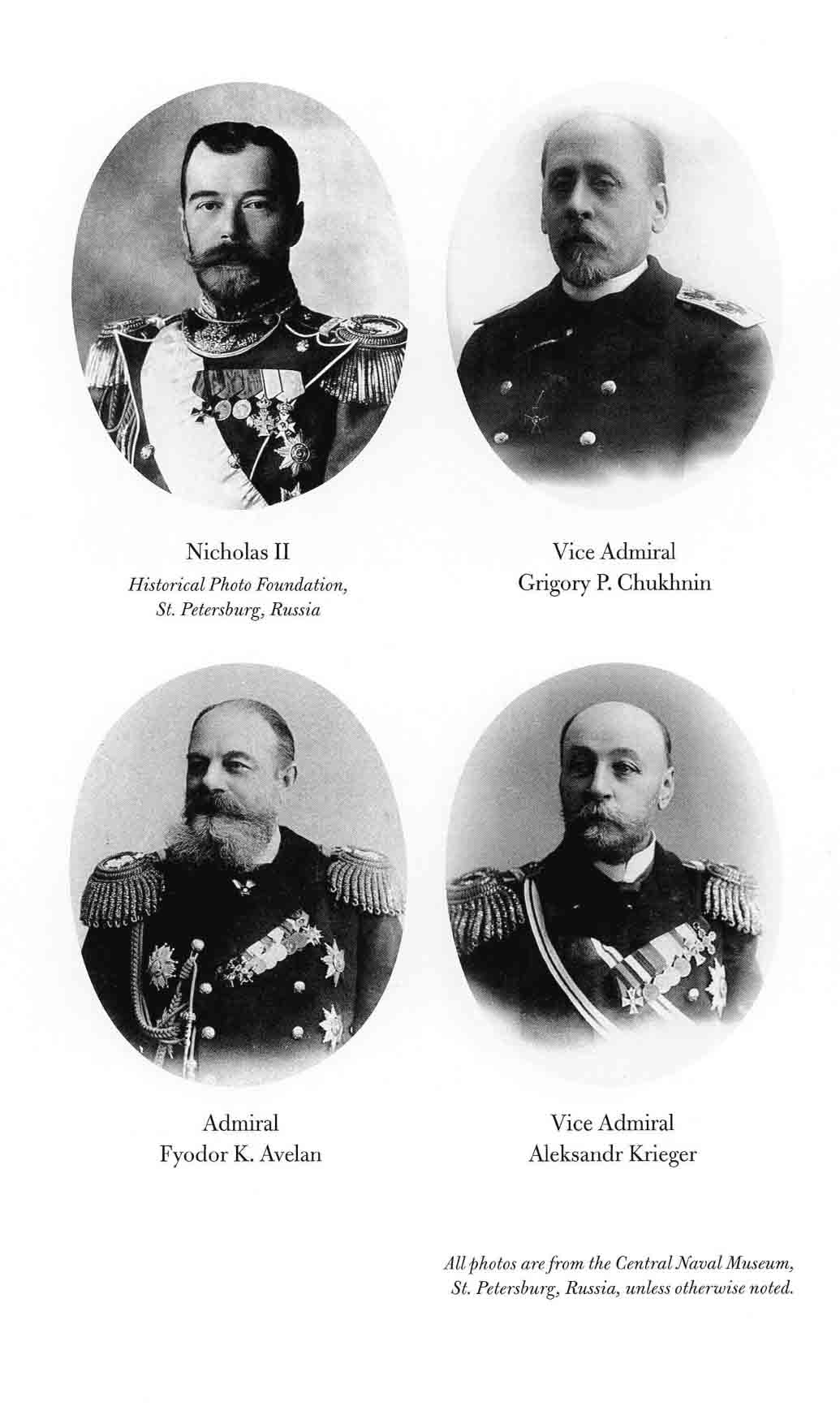
All photos are from the Central Naval Museum,
St. Petersburg, Russia, unless otherwise noted.
